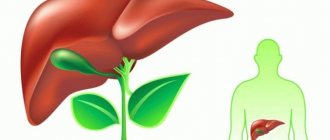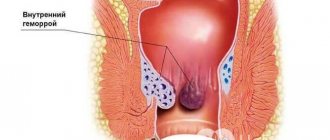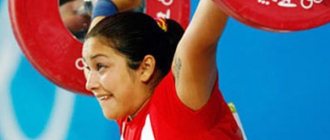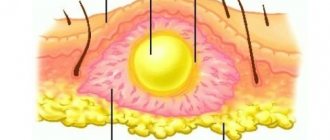Weight and pregnancy - relationship
Weight gain during pregnancy is an absolutely normal process. An increase of 8-15 kg is considered physiological.
Slender women, who before pregnancy could boast of an impeccable figure, gain more weight than plump women: up to 18 kg.
You shouldn’t be upset that every kilogram will have to be lost later: about 50-60% of the added weight will go away during childbirth (this is the weight of the baby, placenta and amniotic fluid), you will lose another 10-35% after some time (after the uterus will shrink, and the blood volume will return to its “pre-pregnancy” state).
And only 15% of the weight gain is the body’s “strategic reserve,” that is, additional fat deposits that are required to carry a baby and feed him.
Such figures are valid only for physiological gain - that which is caused by the restructuring of the body, and not by uncontrolled eating of sweets for all nine months.
A woman’s weight during pregnancy increases not only due to the growth of the fetus, but also due to a restructuring of the functioning of almost all body systems.
Hormones are to blame for this: as a result of their influence, the volume of blood and tissue fluids gradually increases, cholesterol levels rise, and metabolism slows down. After childbirth, the process goes in reverse, and it goes away fastest for those mothers who do not give up breastfeeding.
How to lose weight while breastfeeding: 10 tips for mom
A week before giving birth and a year after giving birth
These simple 10 rules helped me remain a happy nursing mother, be a loving wife and run a household.
1. First of all, you need to get as much sleep as possible
Sleep with your child, dirty diapers and a messy home have never caused any harm to anyone’s health, but lack of sleep is one of the main reasons for poor health in millions of people. Getting enough sleep will lead to a moderate appetite and good mood.
2. Drink a lot (2-3 liters per day) of clean water
Considering that breast milk contains about 87% water, it is necessary to constantly monitor the intake of sufficient fluid into the mother's body. Moreover, the amount of milk depends on the amount of fluid a woman drinks. In addition, water helps in the fight against excess weight, since the body sometimes mistakes banal dehydration for hunger.
3. Eating a small amount of food
It is recommended that a nursing mother eat several times a day, but always in small quantities. You should absolutely not overeat. Eat only if you are hungry. Food should make you feel good. In addition, given constant employment and lack of time, a nursing mother should make sure that the house always has vegetables, fruits, homemade cottage cheese, eggs, herbs, seasonal berries, dried fruits, almonds and pine nuts, sunflower and pumpkin seeds, which you can eat without wasting time on cooking.
4. Eliminate allergens
As a rule, it is recommended to exclude all allergens from the menu of a nursing mother. But this must be done without fanaticism; if you try to study the properties of products in detail, you can come to the conclusion that most of the normal diet is completely unacceptable for feeding a nursing mother. However, it is from food that we get the necessary nutrients, vitamins and minerals. With poor and insufficient nutrition, not only the mother’s body will suffer, but also the baby’s body. The basic rules of nutrition for a nursing mother include an important principle - the gradual introduction into the menu of those foods that the mother’s body requires, but can cause trouble for the baby. This is especially true for the nutrition of mothers whose children are less than 3-4 months old, when their body is so prone to infant colic and other intestinal disorders. Just carefully observe how your baby reacts to the new product. Imagine that you yourself are re-acquainting yourself with the products and try to make the meals as separate as possible, so that it would be easier to monitor the baby’s reaction.
5. Bake and steam
Baking and steaming should be the preferred cooking methods.
6. Eat soups
Meat, fish, vegetables, just not too fatty. Soups are ideal for nursing mothers for several reasons: • calorie content of soups is lower than main courses. It turns out the same volume, but the stomach is full, and there are fewer calories. • the consistency of soups, especially puree soups, is as close as possible to ideal for our tummy, which leads to easy digestion and less energy consumption for digestion. Which means more vigor and excellent well-being. • soup is easy and quick to prepare.
7. Avoid harmful foods
Some foods should be avoided completely, at least during pregnancy and lactation. This is not so difficult, especially when there is such a wonderful incentive as the health of the little person. After all, it is you who can give him a good appetite, a healthy digestive system, protect him from allergies and many other problems, while receiving an additional bonus for your health, appearance and well-being! So, I advise you to completely exclude: products with dyes and preservatives, semi-finished products, fast food, canned, fatty, smoked foods, dishes that contain a large amount of spices, exotic fruits, all kinds of confectionery products, except homemade ones, all ground nuts, especially peanuts, shrimp and all crustaceans, carbonated drinks, all packaged juices and alcohol.
If you really want to pamper yourself with something listed above, then at least know when to stop. A strawberry or a favorite cookie in the diet of a woman who is breastfeeding is unlikely to harm the baby, but will cheer up the mother!
8. Eat vegetables
Try to eat vegetables at every meal, as they are low in calories but provide satiety, vitamins and minerals. Eat protein every day. Cereals will also be beneficial - they provide satiety and carbohydrates, but take a long time to digest and do not cause weight gain. Try to stick to your main meals and don't fast for a long time; if you want to eat, have a snack or drink a warm drink of your choice, otherwise you will eat too much at your next meal.
9. Be physically active
Once you've been discharged from the hospital, it's time to start moving. It’s such a pleasure to return to lightness! A good place to start is walking for 10-20 minutes, but you need to walk every day, or better yet twice a day! Gradually, when you feel that you have more strength, increase the load, speed up the pace of walking and the duration of the walk. You can add swimming, yoga, Pilates, gymnastics, dancing, exercises with your baby.
10. Be a woman
And lastly, but probably most important. Be a woman, the one created by nature, not society. In my opinion, the main purpose of a woman is to create a new life, to bring joy and inspiration, tenderness and kindness, beauty and peace into this world! Do not bury yourself in household chores to the point of exhaustion, turning yourself into a slave of everyday life. Be desirable to your beloved man, leave time for the two of you, at least 30 minutes a day.
I followed a very simple principle: the so-called “peasant diet”. Those. Imagine that you are a peasant and you can eat everything you collect from your garden. I completely excluded everything in the production packaging. I cooked all the food myself. 2-3 months after giving birth, I lost 15 kg and ate almost everything I wanted. And I didn’t have to deal with colic in my baby’s stomach or allergic reactions. My little son ate with gusto, once every 4 hours, and slept soundly. And my body was very pleased with what was happening! Daily sports, walks and positive emotions helped greatly in the process of restoring my lightness.
Personally, motherhood has been a great opportunity for me to start living a healthier, more active lifestyle, and I look forward to it every day! When I found out that I was pregnant, I clearly understood that I wanted a healthy child, that I wanted to be a happy mother, and that it depended only on me! Over the past five years, I have learned and tried an incredible amount of useful and pleasant things, and all this knowledge and practice makes my life cheerful, bright and happy!
How to lose weight after childbirth - four pillars of success
Often on “mother’s” forums there are heartbreaking stories: “I gained 10-15 kg after giving birth, my husband doesn’t want to look at me; how to lose weight?". You can find a lot of similar questions, but there is only one answer to them - stop being lazy and hope for a miracle.
If you want to know how to quickly lose weight after giving birth, first of all overcome your laziness. However, you shouldn’t make a “rush” to the gym: after a natural birth without complications, at least three to five days should pass, and after a cesarean birth, up to a month and a half before physical activity is allowed.
That is why those women who are upset about the topic “I gained so much weight after childbirth” should take a comprehensive approach to solving the question of how to lose weight:
- cosmetic procedures (primarily body wraps and massages) can be started quite early; they will not only speed up the process of returning to a slim figure, but also improve the condition of the skin;
- proper nutrition - although the menu does not have much variety when breastfeeding, you can still adjust your diet;
- water procedures - swimming in the pool is possible and even necessary - such a dosed load will allow you to lose excess weight and have a beneficial effect on your back.
Naturally, no one has canceled the complexes of physical exercises either, but they can only be performed with the approval of a gynecologist, especially after a cesarean section.
You can’t go on a strict diet during breastfeeding!
Why shouldn't you cut down your diet immediately after having a baby?
The answer to this question is extremely simple. If you decide to breastfeed, this process will be very energy-consuming and sometimes even tiring. You simply need a ton of energy from food. In addition, the composition of breast milk must be filled with vitamins, minerals, and fats that are so necessary for a growing baby. Let's add to this a well-known fact - not a single weight loss, diet or hunger strike is complete without negativity, a feeling of weakness or bad mood during moments of a sharp drop in sugar. Naturally, the baby and other family members will fully feel the young mother’s dissatisfaction. Therefore, it would be appropriate here to give three arguments in favor that should reassure you: + Firstly
The more complete and varied your menu is, the more nutrients will enter the baby’s body. For this reason, children fed with natural breast milk grow healthier and are less prone to allergies;
+Secondly
, take advantage of the moment! You have done a tremendous and invaluable job, bearing a new life, raising and preparing the baby for a big and new world. The next few months simply must be your reward and a well-deserved rest.
+ Third
, but no less important: when going on a strict diet, but continuing to feed the baby, be sure that the body will take its toll. Beneficial substances will be extracted from muscles, skin, hair and nails, which will significantly and negatively affect health and beauty. In addition, a lack of calories will instantly develop into fatigue, irritability and absent-mindedness.
How you can lose weight after childbirth - nutritional recommendations
One of the most pressing issues is the “postpartum” diet. Doctors unanimously insist: under no circumstances should you fast! To return to its former shape, switch to fractional meals: eat 4-6 times when you feed your baby, and the portion size should be no larger than your fist.
At night, it is better to drink teas or compotes - you need to sit down at the table no later than two to three hours before bedtime. Sometimes women are sure that it is almost impossible to lose weight after childbirth while breastfeeding, because “you have to eat for two.”
Forget about this rule - scientific research shows that for normal lactation the diet should be only 500-600 kcal more nutritious.
Since to lose weight it is necessary for the body to receive about 1200-1500 kcal, nursing mothers only need to “eat” 1700-2100 kcal per day - this will be enough to produce milk, and the extra pounds will gradually come off.
The main problems in losing weight that women face after childbirth
Having experienced the long-awaited joy of motherhood, soon after giving birth, a woman returns to normal life and often notices that the reflection in the mirror does not bring the former joy - stretch marks, extra pounds, belly. Every third person experiences postpartum depression, and bad mood and aggression against family and the world are consumed with sweets, which further aggravates the situation. At the same time, you want to lose weight quickly and without any problems.
Losing weight after childbirth will require a systematic approach
What you need to be prepared for:
- If you are breastfeeding and the scale needle is not moving, it is quite possible that you still need the extra pounds to maintain the quality of your milk. During feeding, excess fat in women is usually broken down.
- During the first two years of a child’s life, the mother’s hormonal background remains changed. It is the imbalance of hormones that can prevent you from losing excess weight.
- An incorrectly designed menu with a lot of fatty foods and sweets is another anchor for your ship.
- Insufficient physical activity and an incorrect daily routine make metabolism slow, and all unspent energy received from food is stored in reserve.
- The reason may also be the mother's refusal to breastfeed her baby. Feeding allows a woman to spend from 400 to 600 calories, so there is no point in refusing it without medical contraindications.
- Loss of motivation and faith - finding herself in new “magnificent” forms, a woman often stops loving herself, becomes depressed and deliberately projects herself into failure.
What to give up
Say a decisive “no” to sweets - besides the fact that they can cause allergies in the baby, the woman herself does not need fast carbohydrates in large quantities. Forget about condensed milk, which is “so useful” for nursing mothers - it does not affect lactation in any way.
Muffins and pastries are another enemy of your figure, so after pregnancy you should forget about such foods. Give preference to grain breads, baked goods made from wholemeal flour, and remember: one or two slices of bread for breakfast are more than enough.
Carbonated drinks are taboo number three: they can cause bloating in the child, and only bring extra calories to the mother herself.
Losing weight while breastfeeding
Over the entire period of pregnancy, a woman can gain an average of about 10-12 kg. Losses immediately after childbirth are about 5 kg. The remaining deposits remain in fixed places - breasts, buttocks, thighs, abdomen. Most mothers do not lose weight during breastfeeding, because they try to eat for two, justifying this by saying that this will increase the amount of milk. This opinion is wrong. The caloric content of food during breastfeeding should not exceed the normal level for any other period of life.
Why is weight not lost on breastfeeding?
Weight gain during breastfeeding is often caused by misinformation among new mothers. There are beliefs that they need to rest more, sleep, and eat a lot so that milk is produced in the right quantity. This is the main reason. The fact that you continue to gain weight may be due to:
- Genetic predisposition, unhealthy eating habits, slow metabolism.
- Hormonal disorders caused by taking birth control pills before pregnancy, diabetes mellitus or IVF procedure.
- Lack of natural feeding.
Is it possible to lose weight while breastfeeding?
If you set out to lose weight while breastfeeding, you can do this by following the basic rules regarding food and daily routine. Difficulties can arise with lack of sleep, which also affects weight loss. In addition, some women experience depression after childbirth, which they often eat; emotional hunger is difficult to cope with.
A high need for glucose forces you to overeat, and the diet often consists of fast carbohydrates in the form of sweets, pastries, and baked goods. All these factors add up to one thing, which is why it is difficult for a woman to lose weight while breastfeeding. If you think through your diet correctly, schedule your daily routine, and include some physical exercise, then the weight loss process will not be so difficult.
- Good liquid for removing shellac from nails
- Protein in urine what does it mean
- How to delete a VKontakte audio recording in the new version and from Android
How to lose weight after childbirth for a nursing mother - a “green” list of products
- Soups made with vegetable or low-fat chicken broth - they will provide the right amount of liquid and do not contain “empty” calories.
- Vegetables and fruits - introduce them into the diet gradually, in small portions; first heat-treat (bake, boil), then switch to raw.
- Dairy products with a low (up to 2.5%) fat content (completely low-fat are not suitable for nursing mothers).
- Herbal infusions, teas, fruit drinks and compotes.
Those who have transferred their child to artificial feeding should adhere to the same rules - although you can allow yourself more variety in the diet, it is better to forget about hunger strike.
Menu options
In conclusion, here are menu options that can and should be used for quick and safe nutrition during breastfeeding for weight loss:
For breakfast:
oatmeal with apples or other fresh fruits \ wheat porridge with milk \ vegetable or fruit puree with a spoon of honey \ cottage cheese and fruit casserole without sugar\.
For lunch:
vegetable puree soup with chicken broth \ salad with vegetables with a boiled egg \ stuffed vegetables - stewed peppers with carrots, zucchini or cauliflower \ fish soup \ lean boiled pork or beef \
Afternoon snacks and snacks:
omelette \ homemade yogurt or cottage cheese \ fresh vegetables, fruits or salad without dressing \ no-frills raisins \
For dinner:
steamed meat balls \ oven-baked fish with vegetables \ salads with beans, beets, cabbage \ kefir and natural dairy products \ walnuts, dried fruits, prunes \
Remember, even if you adhere to the principles of proper nutrition, increase physical activity, but the weight does not go away, do not be discouraged. After the birth of a child, hormonal levels shift greatly and all efforts may not bring results. We discussed why hormones cause weight gain in one of the previous articles.
How to lose weight after childbirth and remove belly fat - exercise
In the first days after natural childbirth, you should limit yourself to walking (for example, with a stroller), and only after a month, or even a month and a half, you can add special exercises, which should be gentle.
These are bends to the sides, swings of the arms. Gradually add squats, forward bends, and stretching exercises. If you have undergone surgery, you can strain your abdominal muscles only after the discomfort in the scar area disappears.
Young mothers who cannot lose weight after giving birth and do not know what to do about this problem should sign up for a swimming pool: take swims (start with two five-minute swims with a ten-minute break, later reduce the rest time and increase the duration of the swims).
Avoid strength training - it causes the production of lactic acid, which gives an unpleasant taste to breast milk.
After childbirth, you should give preference to static loads: bodyflex, Pilates, yoga.
Diet pills for breastfeeding
Any medications, for example, Turboslim, Li Da, Reduxin, are strictly prohibited during breastfeeding, because their active substances accumulate in milk and negatively affect the health of the baby. Some medications can even block your baby's absorption of fats and carbohydrates. This leads to mental disorders, poor health and other negative consequences.
A set of exercises to get back slim
Vacuum lying
Lie on your back with your knees bent. Place your feet on the floor and place your palms on your stomach. Inhale slowly and relax your abdominal muscles. Exhale sharply and tighten your abs, pulling in your stomach. Lock in this position for 3-5 seconds. Up to 10 repetitions.
Half bridge
From the same position, perform a “glute bridge”: lift your stomach and pelvis, and press your chin to your chest. Fix your body for 3-5 seconds (keep your abdominal muscles tense), then relax. Up to 6-10 repetitions.
Abdominal retraction
Without getting up from the floor, turn on your side, bend your arm at the elbow, and place it under your head.
Inhale slowly, and as you exhale (it should be calm), draw in your stomach, helping yourself with your free hand. 10 repetitions on each side.
Pelvic lift
In the same position, bend your knees. Bend your upper arm and place your fist on the floor in front of your navel. As you exhale, lift your pelvis, lifting it off the floor (the weight is transferred to your upper arm), and as you inhale, lower it. Do 8-10 repetitions on each side.
Retraction
Roll over onto your stomach and place a flat pillow under your lower abdomen for comfort.
Bend your elbows in front of you, lean on your elbows, pressing them to the floor.
As you exhale, “push” your pelvis forward, and as you inhale, relax. Repeat 8-12 times.
Rules for losing weight for a nursing woman
There is a certain set of norms that allow you to keep your appetite within certain limits, but also not feel hungry. It is just suitable for women during lactation.
Rule 1
During lactation, you need to eat for two, but not for two. The newborn will feel good and the mother will not get better only if she knows how many calories are needed to lose weight.
The production of mother's milk requires energy expenditure, so you need to increase the daily calorie content of meals by 500 kcal. If this limit is observed, body weight will gradually decrease without consequences.
Rule 2
Avoid unhealthy foods that contribute to the appearance of extra pounds. It is impossible to exclude everything, but everyone can remove what is not so dear to the heart and stomach.
Rule 3
The remaining high-calorie treats, which are the hardest to give up, must be eaten in the morning. Breakfast should be your favorite meal. During this time, allow yourself everything, but in moderation.
Rule 4
Eliminate all foods with unnatural ingredients and those that cause discomfort.
Rule 5
Make food restrictions a way of life. People who lose a lot of pounds and maintain a slim figure are not on diets. Proper nutrition is the norm for them.
There are many different delicious, healthy and low-calorie recipes that few people know about. You can find an equally tasty alternative to your favorite fatty pork pilaf - for example, chicken pilaf.
Rule 6
Check your thyroid gland. For some, the kilograms do not go away even when they are on a diet and actively exercise. In this case, women cannot understand why it is difficult to lose weight while breastfeeding.
An endocrinologist will help answer this question. After balancing the hormonal levels, the weight comes off very quickly. To prevent problems with the thyroid gland, you need to drink dietary supplements containing iodine and iron.
Rule 7
Walk more often. Surely, not far from your house there is a park or a beautiful courtyard that is pleasant to walk through. Combine business with pleasure. Walking in the fresh air with a stroller or sling will help you lose weight quickly.
Daily half-hour rhythmic walks allow you to lose 2-3 kg per month.
Rule 8
Learn to be content with a light dinner. You can’t give up dinner completely, but you can fill it with healthy treats.
Agree that a fruit salad dressed with natural yogurt is much tastier than a sandwich with sausage.
Rule 9
Eat in small portions. A distended stomach always requires more than it needs, so you need to monitor portion sizes. Frequent meals ensure a constant supply of nutrients.
Rule 10.
Get enough sleep. Growth hormone is a fat-burning hormone and is produced at night from 00:00 to 1:00 in the deep sleep phase. If you sleep poorly, you will gain weight.
How to lose weight after childbirth - cosmetic procedures at home
Master self-massage and work on “problem areas” daily, at least for twenty minutes. It is better to perform it after a hot shower. Before any movements, tense your muscles - you need to massage the fatty tissue, not the intestines or stomach.
Pinch the skin, knead it like dough, rub it with your knuckles. This technique also effectively gets rid of fat: in the area of the lower ribs, grab the fat fold with your fingers and “roll” it down. Make about seven passes. You need to end the session with stroking.
Wraps have also proven themselves well: with clay, coffee grounds and honey (in equal proportions), with olive oil and sea salt (mix them until thick as sour cream). Apply the mixture to your body, wrap it in cling film, hide under a blanket for half an hour or put on a warm thing.
Do this twice or thrice a week - and slimness is guaranteed.
We are developing a training plan for mothers
Building a training plan for a nursing mother should be based on the individual characteristics of her body, body type, the course of labor, as well as physical fitness before childbirth.
It is known that women who exercised before and during pregnancy regain their shape much faster than those who did not exercise.
You need to start classes depending on how the birth itself went. If the baby was born naturally, then you can start exercising after 4 weeks (and it’s better to start doing light exercises in the first days). In case of minor complications (cuts and tears), it is recommended to postpone training for 6 weeks.
After a cesarean section, the doctor will advise starting exercises after two months, and performing abdominal exercises only after three.
Pilates training can help a nursing mother lose weight. Pilates is a set of exercises that will help strengthen the muscular frame of the body, work the back and abdominal muscles. In addition, training occurs at a slow pace, which will allow the cardiovascular system and joints to adapt to increased load. You can practice both in numerous fitness centers and at home, using training videos from the Internet (in our separate material on Pilates you can watch a video course of exercises for beginners).
After two to three weeks of Pilates, you can add cardio: swimming in the pool, cycling, walking or jogging. For example, jogging lightly for twenty minutes will not only boost your metabolic processes, but will also make subsequent strength sets more effective. Active strength training with weights can be included in the training program after another two weeks.
Strength training must include a set of exercises for the abs and back muscles. It is known that after childbirth, fat takes the longest to leave the area of the sides and waist. The easiest way to remove belly fat after childbirth is through various variations of crunches.
How to lose weight after childbirth - video
Another effective and original way to get in shape after childbirth is to do fitness with your baby. You will learn how to do it from the video.
You can do this way starting from the age of three months, gradually increasing the duration of training. Breastfeeding mothers can also do these exercises.
Do you want to listen to the compliments of others: “How much weight you lost after giving birth!”? Do exercises, do not forget about your diet and procedures, and the result will appear in a month.
How do you get your figure back to normal after pregnancy? Share your secrets in the comments!
How can a mother who is losing weight not harm her baby?
Essentially, the baby eats what his mother eats. If the diet becomes incorrect, it can harm the baby. Milk is not just food for a child - it is a natural shield. It contains interferons and other substances that protect the baby from infections and allow you to safely wait for the development and establishment of your own immunity.
Breast milk also contains other substances that promote the production of lacto- and bifidobacteria. This protects the newborn from infections and other troubles.
The period after the birth of a baby is exactly the stage of life when you should start eating healthy food. A breastfeeding diet for weight loss can harm the baby, so it does not exist as such.
There are rules and restrictions that it is advisable to adhere to. Doctors prohibit radical weight loss in the first 6 months after childbirth, because hormonal cycles may become disrupted and teeth and hair may begin to fall out.
If the mother is not allergic to sea fish and seafood, then they can be introduced into the diet when the child is 3 months old.
Polyunsaturated fatty acids contained in seafood have a beneficial effect on the development of the baby's nervous system, and low-calorie content will help a nursing mother keep in shape.
Vegetable soups and light broths will not harm your figure, and for the baby they will become a source of nutrients that he will receive through breast milk.
When to start losing weight?
During pregnancy and after childbirth, a young mother expends a large amount of energy, which is needed to restore the body. Therefore, you cannot immediately go on a diet and try to quickly lose excess weight. This can harm not only the woman, but also the child.
If the mother does not eat properly, the baby will not be able to receive enough nutrients through breast milk.
First stage: up to 6 months
The first six months are the most important period. There is no need to greatly limit yourself in food. This contributes to a decrease in lactation, which is why the child is malnourished and develops poorly. It is also better to avoid intense physical exercise so as not to exhaust your body.
A young mother needs to watch her diet. You should avoid fatty, fried, smoked, spicy foods, as well as pickles and sausages. It is better to cook stewed, boiled, baked dishes at home.
A proper diet should be rich in vitamins and microelements. Therefore, you need to eat more vegetables, fruits, meat, and fish.
Liver should be present in the diet 2-3 times a week. It contains iron, which is necessary for pregnant and lactating women.
You need to eat in small portions, but often. Let your last meal be no later than 8 pm.
At night you can drink a cup of hot tea with milk. It will relieve hunger and improve lactation.
Second stage: after 6 months
During this period, you can begin to reduce your fat intake to 40 g per day. This amount can be obtained from eggs, cottage cheese and milk.
Under no circumstances should fats be completely eliminated.
In moderation, they are necessary for the normal functioning of the nervous and endocrine systems. In their absence, irritability increases, hormonal levels are disrupted, the skin dries out and nails become brittle.
In this case, preference should be given to vegetable fats and fish oil.
Basic recommendations for losing weight
The most important rule and, if you like, the secret to losing weight is to spend more energy than you consume. The rule is obvious and, at first glance, banal, but not everyone manages to follow it flawlessly.
And the point is not even a lack of willpower for regular physical exercise, but the fact that even physical exercise will not help start the fat burning process if the caloric content of food is excessive.
Many people, looking back at their daily diet, very often say that they eat nothing at all, but still gain weight.
But during the conversation it turns out that in the morning the girl had a sandwich for breakfast, at lunch she “just” drank tea and chocolate, for an afternoon snack she had juice with gingerbread, and for dinner “only” two bananas.
As a result, such a menu is not inferior in calorie content to five meals a day, and due to the sugar contained in the products, fat on the sides is deposited with renewed vigor, and the girl constantly feels hungry, because the amount of food is really small.
Therefore, before you drink tea with chocolate (100 g), remember that even two hours in the gym will not be enough to use up the energy received.
In light of all that has been said, one important conclusion follows: for proper nutrition in order to lose extra pounds, it is better to eat a full meal, for example, mashed potatoes with boiled fish, than to snack on a sandwich.
The second most important rule is not to exhaust yourself with diets.
Firstly, with a sharp decrease in the nutritional value of the diet, you risk disrupting the lactation process.
Secondly, with a strict diet, the body goes into, let's call it, “energy conservation mode.” That is, it begins to slow down all metabolic processes, trying to save energy. This is expressed in drowsiness, fatigue, and irritability. It could all end with you getting some kind of cold (at best), because the body also begins to skimp on immunity.
With all this, you will not be able to achieve significant results in losing weight, because the body adapts its metabolism to the constantly decreasing calorie content.
This is why you should never go hungry, and this is why the third recommendation was born to eat often and in small portions in order to maintain a fast metabolism with an overall low calorie intake.
There are also general recommendations that can promote weight loss while breastfeeding:
- Maintain a daily routine. It is advisable to learn to adapt to the child - eat and rest with him at the same time.
- Sleep at least 8 hours a day. If you can’t sleep all night, you need to go to bed with your baby during the day.
- Well, the main rule is the desire to lose weight.
Among other things, breastfeeding itself promotes weight loss. This is due to the fact that milk production takes a lot of energy.
So, the key to success in losing weight is to watch your diet.











